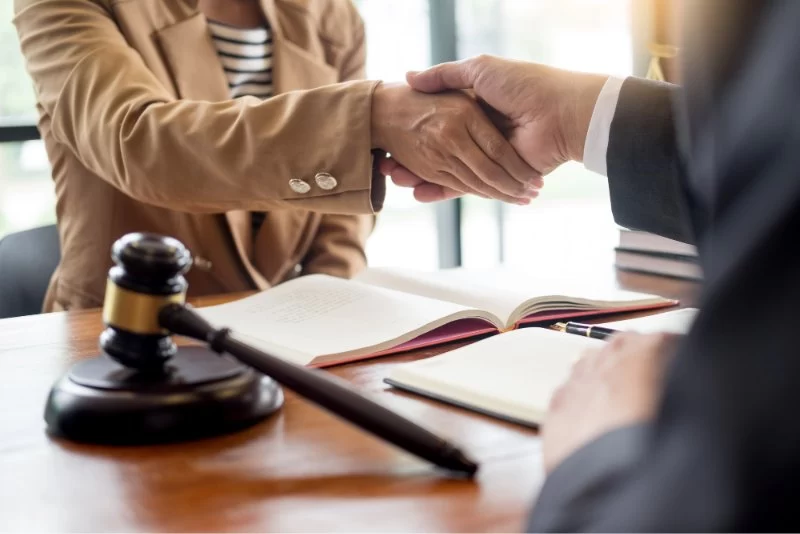
- 1 - Understanding Whether Consultations with Lawyers Are Free
- 2 - Why Some Lawyers Offer Free Consultations
- 3 - What Happens During an Initial Legal Consultation
- 4 - Different Types of Consultation Fees Explained
- 5 - Real Client Example: When Free Consultations Make a Difference
- 6 - How to Make the Most of Your Consultation
- 7 - Expert Advice and Recommendations from ESPLawyers
Understanding Whether Consultations with Lawyers Are Free
Many people searching for legal help wonder, are consultations with lawyers free? The answer depends largely on the type of case and the lawyer’s business model. Some attorneys, particularly in areas like personal injury or employment law, offer free initial consultations to assess your case and explain your legal options. Others charge a modest fee for their time and professional insight, especially in complex matters like business litigation or family law.
In the United States, there’s no universal rule requiring attorneys to provide free consultations. Instead, each firm decides based on their practice area, client base, and case demand. Understanding this distinction helps clients manage expectations and make informed decisions when seeking representation.
Why Some Lawyers Offer Free Consultations
Building trust and accessibility
Many firms use free consultations as an opportunity to build rapport with potential clients. This initial conversation allows both parties to gauge compatibility without financial pressure. It’s especially common in contingency-fee practices—like personal injury—where lawyers only get paid if you win.
Assessing case strength
Lawyers also use these meetings to evaluate whether a case is worth pursuing. They review facts, evidence, and potential legal arguments to determine if representation aligns with their firm’s focus. From the client’s perspective, it’s a valuable chance to understand whether the issue merits further legal action.
What Happens During an Initial Legal Consultation
1. Reviewing your case background
During the first meeting, you’ll discuss the details of your situation—timelines, documents, and any relevant correspondence. The attorney listens carefully, asking clarifying questions to understand the full context.
2. Outlining legal options
The lawyer then explains possible legal strategies, expected challenges, and potential outcomes. This is also where you can learn about different approaches to resolving your matter—through negotiation, mediation, or litigation.
3. Fee structure discussion
Even if the initial consultation is free, the lawyer should clearly explain their billing system moving forward. Some charge hourly rates, while others work on a contingency or flat-fee basis. Transparency at this stage helps you plan financially before committing.
Different Types of Consultation Fees Explained
Free consultations
These are typically offered for straightforward or contingent cases. The goal is to evaluate potential representation rather than provide full legal advice. Firms like ESPLawyers often use free consultations to help clients explore options without commitment.
Low-cost or limited-fee consultations
Some attorneys charge a nominal fee—often between $50 and $150—for a one-time session. This helps filter serious clients while covering administrative time. It’s a common model for family law or real estate attorneys.
Full-fee consultations
In high-stakes legal matters, such as corporate disputes or criminal defense, attorneys may charge their standard hourly rate. In these scenarios, the consultation itself provides substantive legal guidance, often including document review and strategy formation.
Real Client Example: When Free Consultations Make a Difference
Consider the case of a small business owner facing an unexpected contract dispute. Unsure whether they could afford legal help, they reached out to a firm offering free consultations. Within 30 minutes, the lawyer identified that the dispute could be resolved through negotiation rather than court. This insight not only saved the client money but prevented unnecessary litigation stress.
This example shows how understanding are consultations with lawyers free can be empowering—especially when time and resources are limited. The right consultation can save thousands in legal expenses down the line.
How to Make the Most of Your Consultation
Prepare your documents and questions
Bring relevant paperwork—contracts, emails, court notices—and prepare a short summary of your situation. The more organized you are, the more useful advice you’ll receive.
Be honest and concise
Transparency helps lawyers assess your case accurately. Don’t withhold key details, even if they seem minor—they could influence the legal strategy.
Clarify costs and next steps
Always confirm whether the meeting is free and ask about future billing. Understanding the cost structure upfront helps you avoid confusion later.
Expert Advice and Recommendations from ESPLawyers
According to the legal specialists at ESPLawyers, free consultations are not just marketing tools—they’re a gateway to accessibility. For many clients, that first conversation can determine whether they pursue justice or walk away from an issue. ESPLawyers encourages individuals to take advantage of initial consultations to explore options, understand rights, and evaluate whether a lawyer’s approach fits their needs.
Whether you’re dealing with a civil dispute, business issue, or personal legal concern, ESPLawyers offers tailored guidance to match you with experienced attorneys who value transparency and professionalism. Taking that first step—whether free or paid—can set the foundation for a successful legal outcome.








